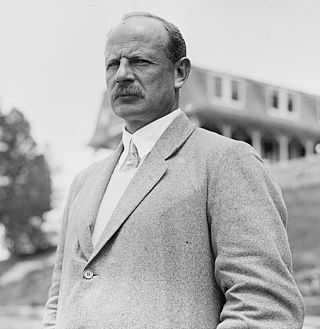Related Research Articles

Henley Royal Regatta is a rowing event held annually on the River Thames by the town of Henley-on-Thames, England. It was established on 26 March 1839. It differs from the three other regattas rowed over approximately the same course, Henley Women's Regatta, Henley Masters Regatta, and Henley Town and Visitors' Regatta, each of which is an entirely separate event.

Vesta Rowing Club is a rowing club based on the Tideway of the River Thames in Putney, London, England. It was founded in 1870.

The Thames Rowing Club (TRC) is a rowing club based on the tidal Thames as it flows through the western suburbs of London. The TRC clubhouse stands on Putney Embankment. The club was founded in 1860.

Jack Beresford, CBE, born Jack Beresford-Wiszniewski, was a British rower who won five medals at five Olympic Games in succession. This record in Olympic rowing was not matched until 2000 when Sir Steve Redgrave won his sixth Olympic medal at his fifth Olympic Games.

Raymond Broadley Etherington-Smith was an English doctor and rower who competed for Great Britain in the 1908 Summer Olympics.

Guy Nickalls was a British rower who competed in the 1908 Summer Olympics as a member of the British eight that won gold, won 22 events at Henley Royal Regatta and won the Wingfield Sculls three times.

Walter Bradford Woodgate was a British barrister and oarsman who won the Wingfield Sculls three times, and various events at Henley Royal Regatta including the Silver Goblets five times and the Diamond Challenge Sculls once. He founded Vincent's Club as an undergraduate at Brasenose College, Oxford, in 1863, and in 1868 created the first coxless four by persuading Brasenose's cox to jump overboard after the start of Henley's Stewards' Challenge Cup.

Alexander Alcée Casamajor was a British rower who won the Wingfield Sculls in six successive years and the Diamond Challenge Sculls at Henley Royal Regatta as well as being twice in the winning Grand Challenge Cup team.
Albert De Lande Long was an English iron founder and manufacturer who co-founded the company Dorman Long. Before doing so he was a highly successful adult amateur rower.
William Stout (1841–1900) was a British rower who won the Wingfield Sculls and the Diamond Challenge Sculls at Henley Royal Regatta in 1868.
Josias Nottidge (1828–1873) was an English rower who twice won Silver Goblets at Henley Royal Regatta.
James Paine was an English rower who competed in the 19th century and won the Wingfield Sculls and events at Henley Royal Regatta.
The Argonaut Club was an English rowing club based on the Tideway of the River Thames that competed in the middle of the 19th century.
James Hastie was a British rower who won Silver Goblets at Henley Royal Regatta three times.
The Thames Club was an English rowing club based on the Tideway of the River Thames that competed in the middle of the 19th century.
This entry confuses two different sons and needs amending.

The St George's Club was an English rowing club based on the Tideway of the River Thames that competed in the middle of the 19th century.
Alfred Trower was an English rower who won events at Henley Royal Regatta.
David Edward Brown was a British rower who won several events at Henley Royal Regatta in the 1880s.
Edward Buck was an English schoolmaster and rower who won several events at Henley Royal Regatta.
References
- ↑ Sport, ancient and modern: Pastimes, A History of the County of Middlesex: Volume 2: General; Ashford, East Bedfont with Hatton, Feltham, Hampton with Hampton Wick, Hanworth, Laleham, Littleton (1911), pp. 283–292. Date accessed: 17 February 2010
- ↑ "Gulston, Francis Stepney (GLSN863FS)". A Cambridge Alumni Database. University of Cambridge.
- 1 2 Martin Cobbett Wayfaring Notions 1906 p 132
- ↑ "Journal of a Young Lady of Fashion (Agnes Hermione Jennings)". Archived from the original on 12 April 2009. Retrieved 20 February 2010.
- ↑ Henley Royal Regatta Results of Final Races 1839–1939 Archived 9 March 2012 at the Wayback Machine
- ↑ E D Brickwood Boat Racing or The Arts of Rowing and Training 1876
- ↑ THE LONDON FOUR-OARED CREW; ARRIVAL OF THE ENGLISH OARSMEN New York Times August 14, 1876
- ↑ Walter Bradford Woodgate Boating p 194
- ↑ British Census 1881 RG11 0662/38 P 21